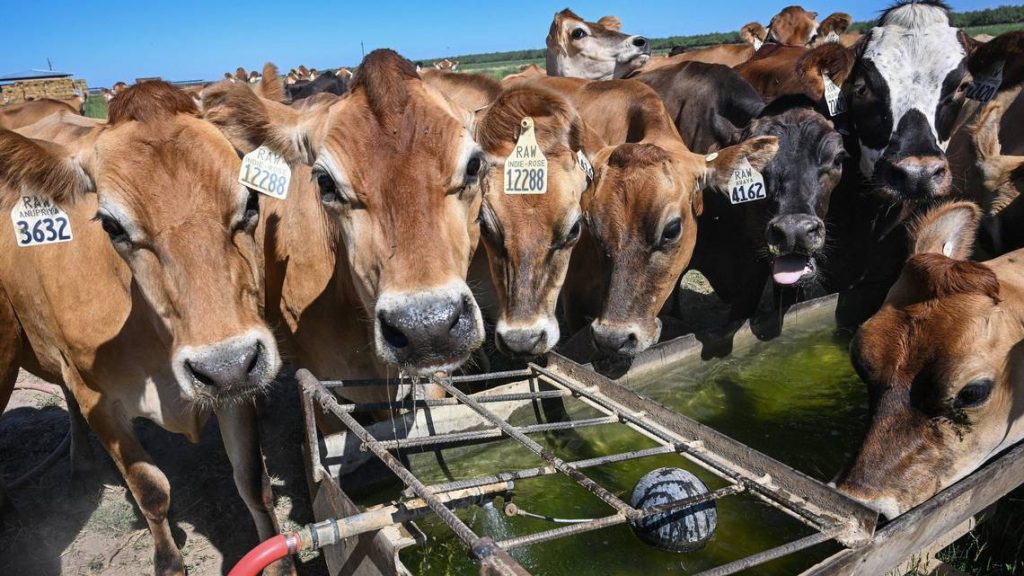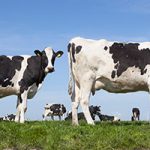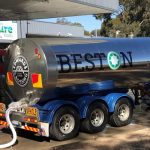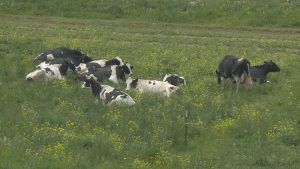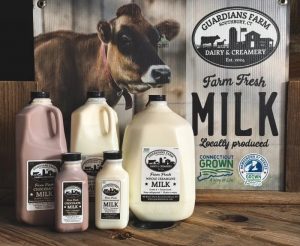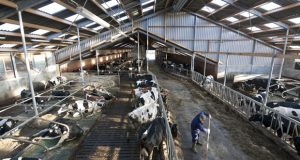
Small dairies in California are under unfair criticism that their efforts to lower emissions will only lead to bigger dairies emitting even more. I’d like to provide more context and facts about that misconception.
First, let’s start with the basics: California’s low-carbon fuel standard program is a regulatory initiative aimed at curbing greenhouse gas emissions by reducing the carbon intensity of transportation fuels, such as diesel and gasoline.
Since 2011, the low-carbon fuel standard program has set progressively stricter “carbon intensity benchmarks,” incentivizing the use of low-carbon alternatives such as biomethane or renewable natural gas. It has also held fuel producers accountable through a system of credits and deficits.
At my family farm in the Central Valley, we’re in the process of installing an anaerobic digester in collaboration with Brightmark, the future operator of our Chowchilla Circularity Center. These systems essentially use sealed, oxygen-free tanks that “digest” cow manure and other organic waste with the help of naturally occurring bacteria, breaking the waste down into biomethane, water and fertilizer. Instead of letting the biomethane escape into the atmosphere, as it otherwise would, digesters clean and compress it into renewable natural gas so that it can be used as transportation fuel or as a source of energy to heat and power local homes.
The agriculture sector is responsible for less than 10% of total U.S. greenhouse gas emissions, while emissions from the energy sector are significantly higher. This technology will help lower not only agriculture emissions, but energy as well.
Our efforts to install a dairy digester will help us cut emissions, and it will also allow us to convert and recycle manure into something we all benefit from — without affecting daily operations.
Across the state and the country, 96% of U.S. farms are family-owned and operated. Many of these dairy families are leaning on anaerobic digester technology to help balance profitability with sustainability to maintain their family businesses.
California’s vision for the future of its agricultural sector is personal to us. My wife, Darcy, and I are first-generation American farmers with farming roots that stretch back to Holland and the Azores. Our children have grown up on our farm, helping care for our animals and tend the ranch. Families like ours, that have deep roots in agriculture, are committed to preserving our farming legacies for future generations of agriculturalists.
Sustainable practices reduce operating costs in the long run and help mitigate environmental risks, such as soil erosion and water pollution. Dairy farmers have always used sustainable practices, and utilizing these agricultural technologies will continue to significantly reduce the environmental footprint at farms, contributing to cleaner air, water and soil. The next generations will benefit from the clean air and economic stability sown by our investments in sustainable, climate-smart technologies.
One of the arguments against digester projects like ours is their potential to incentivize increased farm sizes, leading to additional methane emissions. But the evidence to support this claim has so far been inconclusive.
Meanwhile, renewable natural gas production at farms is often handled by third-party project developers, and the additional revenue generated from renewable natural gas production is critical to help defray the cost of implementing digester technology and encourage the transition toward sustainable agriculture. Dairymen have also been focused on making more milk with fewer cows while maintaining that animals are properly handled and cared for.
Dairy farming management has evolved tremendously: Cow numbers in the state have dropped, not risen, in the past few decades due to dairy farmers adopting technology into their businesses that help improve genetics, animal nutrition, cow comfort and overall management practices.
The steps California has taken to support digester projects have helped the state’s agricultural sector while cutting emissions in critical areas. I’m proud that farms like mine can contribute to the state replacing more than half of all diesel supplies with cleaner alternatives that produce fewer emissions.
Thanks to programs like the low-carbon fuel standard program, dairy farms play a vital role in California’s efforts to generate renewable sources of energy.
Supporting methane capture at these farms through public programs is not only environmentally sound, it’s economically beneficial. Regulators must continue supporting digester technology and ensure that California remains a leader in sustainable agriculture.
We hope that everyone will remember that California agricultural businesses, like ours, put food on the table for millions of working American families, while serving as an environmentally responsible part of our local community and economy.
You can now read the most important #news on #eDairyNews #Whatsapp channels!!!
🇺🇸 eDairy News INGLÊS: https://whatsapp.com/channel/0029VaKsjzGDTkJyIN6hcP1K
